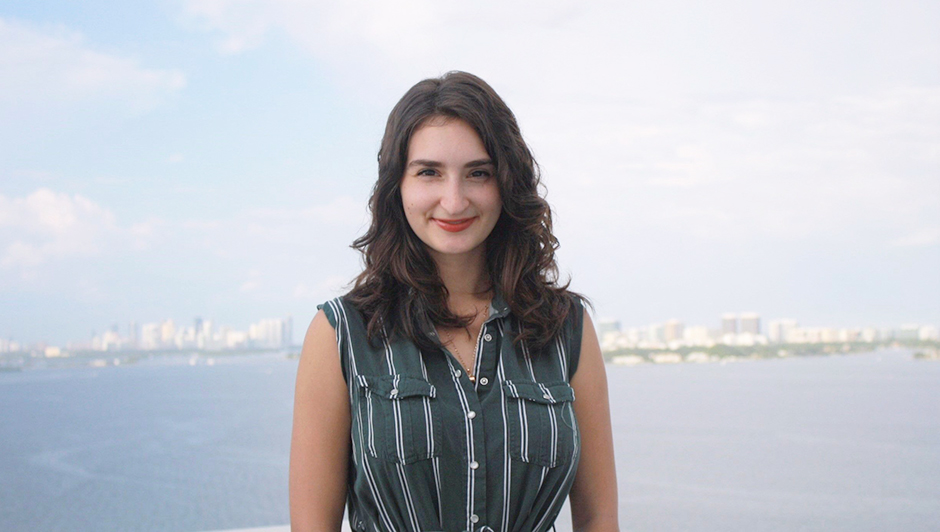Yelizaveta “Liza” Khmara is ready to tackle her next best challenge as a new 2020 Next Generation Fellow for the University Corporation for Atmospheric Research (UCAR).
“I am extremely excited for this fellowship,” said Khmara. “I think every academic intends for their work to be important for society and policy. Earning this fellowship validates the relevance of my work and gives me the opportunity to apply my knowledge to the policymaking process, while providing additional funding for my research.”
Khmara earned her B.A. in geography with a minor in mathematics and is on her way to a Ph.D. in Environmental Science and Policy through the Abess Center for Ecosystem Science and Policy. She hopes the fellowship will give her the additional benefit of working in the same space as the federal agencies that are a significant part of her dissertation topic, which explores the role of protected areas and their governance on human communities.
Throughout the academic year, Khmara will receive funding support from UCAR and spend the next two summers working at the UCAR Government Relations office in Washington, D.C.
Born in Russia, Khmara immigrated with her family to New York at the age of two and came to the University of Miami as a freshman in 2014. Her future career goals include influencing policy change as an analyst at a think-tank, NGO, or government agency.
“I aim to demonstrate that protecting the environment does not have to result in negative consequences for society,” said Khmara. “In fact, it provides many social, economic, and health benefits. I hope that my work contributes to actionable change and a shift in how the relationship between people and the environment is viewed at large.”
Khmara’s path to environmental policy was not linear. She came to the University of Miami as a biomedical engineering major and was more than halfway through the coursework when she decided to change fields.
“Although I enjoyed the interdisciplinary, innovative nature of the discipline, I was unsure about what kind of career would be a good fit for me,” said Khmara.
While in the process of figuring out her new academic path, Khmara contemplated Political Geography, a course she took with Professor Ira Sheskin as a general degree requirement.
“Before taking the course, my conception of geography, like some others, was that the field was about knowing where countries were located,” she said. “I quickly realized that it was much more. Geography is a lens with which to view the world and a way to connect people with places.”
After making the switch, Khmara enrolled in several geography courses before taking a sustainable development course with Department Chair and Professor Jose Cardoso da Silva, who became Khmara’s Ph.D. program advisor and one of her mentors.
“Dr. Silva encouraged me to pursue graduate school and recommended me to my Ph.D. program at the Abess Center,” adds Khmara. “I am inspired by his dedication to his work and research, and I hope to be as prolific of a writer as he is.”
Khmara says she is also very grateful to her family, especially her grandfather. “As a Jewish man in the Soviet Union, he faced anti-Semitism in many aspects of his life, especially in his career,” said Khmara. “Against all odds, he became a professor at one of the most prestigious schools in the Soviet Union. Pursuing my Ph.D. is a tribute to his determination and devotion to the pursuit of knowledge.”
While navigating her policy career, Khmara hopes to use her experience to aptly help the next generation. “I would like to remain involved in academia to help students find their paths in life, in the same way that I have been inspired to by my mentors.”

